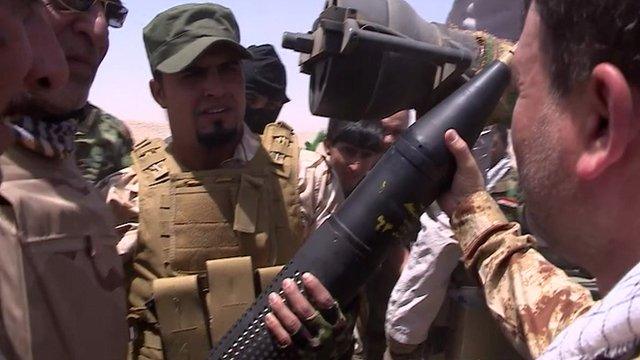Iraqi PM Haider al-Abadi moves to tackle corruption
- Published
Iraqis on the streets of Bagdad have given the proposals a cautious welcome, as Ahmed Maher reports
Iraqi Prime Minister Haider al-Abadi has unveiled sweeping reforms to reduce government costs and fight corruption after protests across the country.
He said senior political appointments should not be based on sectarian or party quotas and moved to abolish the posts of vice-president and deputy PM.
Most of Mr Abadi's proposed reforms will require parliamentary approval.
The move follows recent anti-government protests sparked by unreliable electricity amid a major heatwave.
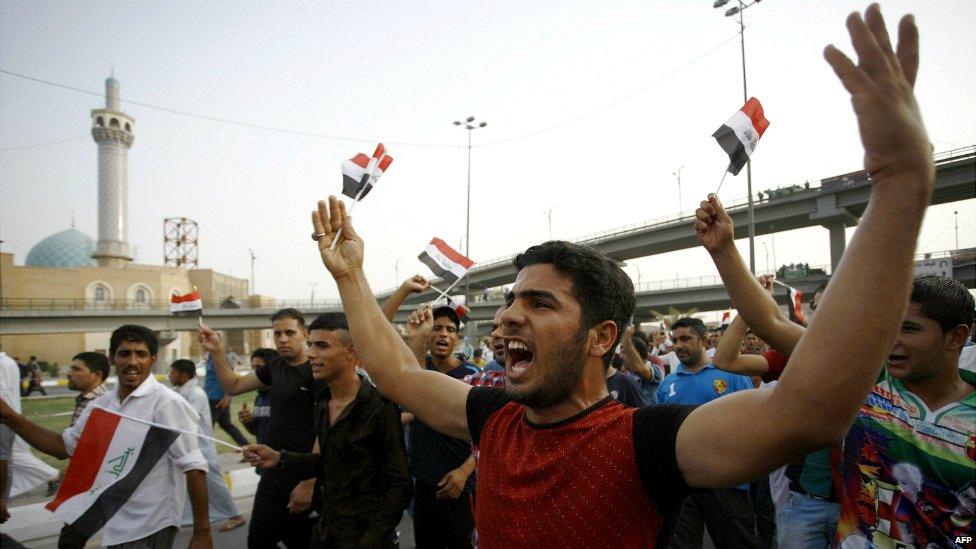
Baghdad and other cities have seen weeks of protests over poor services
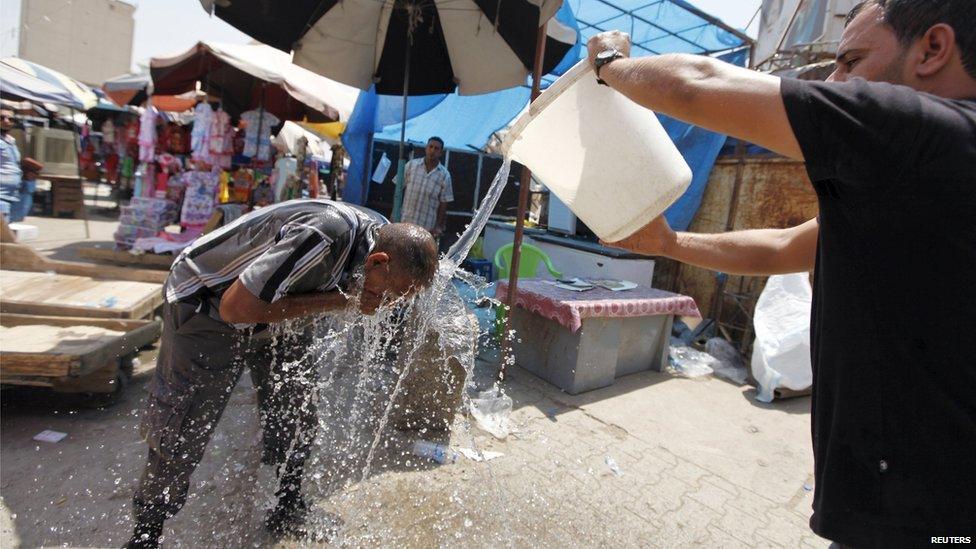
Temperatures in some part of Iraq have reached 51C
On Friday, Ayatollah Ali al-Sistani - Iraq's most influential Shia cleric - also urged Mr Abadi to "strike with an iron fist" against corruption and make political appointments based on ability rather than party or sectarian affiliation.
Iraq's system of sharing government posts between sectarian groups has long been criticised for promoting unqualified candidates and encouraging corruption.
The country has three vice-presidents - two Shia and one Sunni - and three deputy prime ministers - a Shia, a Sunni and a Kurd.
One of the Shia vice-presidents is former Prime Minister Nouri al-Maliki, who has previously said he supported reform.


Mr Abadi is seen as a less divisive figure than his predecessor Nouri al-Maliki
Analysis: Sebastian Usher, BBC Arab affairs editor
Reform was the promise on which Haider al-Abadi was brought to power to replace his predecessor, Nouri al-Maliki, whose policies alienated many Iraqis, especially Sunni Muslims.
The hope was that a less corrupt and sectarian government would help in the fight against Islamic State militants. That battle remains very much in the balance.
It's been complicated by growing public anger over crippling power cuts in sweltering summer heat. Protests have erupted across the country against official corruption and incompetence.
Mr Abadi has now moved to try to meet those demands in a bid to maintain a fragile unity against the jihadists.

Mr Abadi's seven-point plan also includes a requirement for a number of government positions to be filled with political independents - a move aimed at cracking down on corruption.
It also calls for a reduction in the cost of personal bodyguards for officials and an increase in the budget of the national security forces.
The move is one of Mr Abadi's biggest challenges to date, says the BBC's Ahmed Maher in Baghdad.
Though he has secured the approval of his cabinet, Mr Abadi must take the measures to parliament, where his opponents will make it difficult for him to press ahead with his reforms.
Failing to get his proposals through would undermine his credibility among Iraqis, but swift action is unlikely, our correspondent says.
- Published4 March 2015
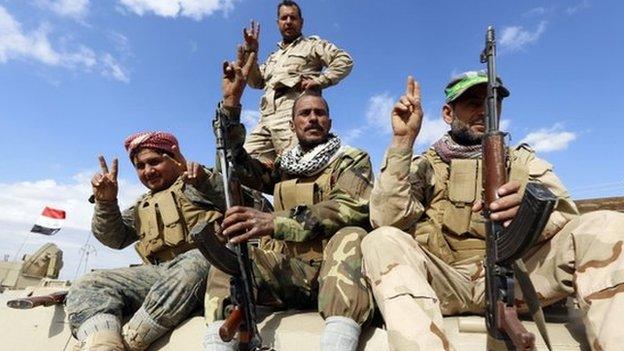
- Published9 September 2014
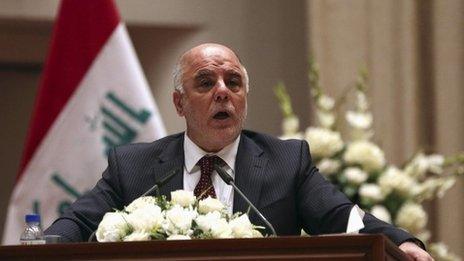
- Published17 June 2015
